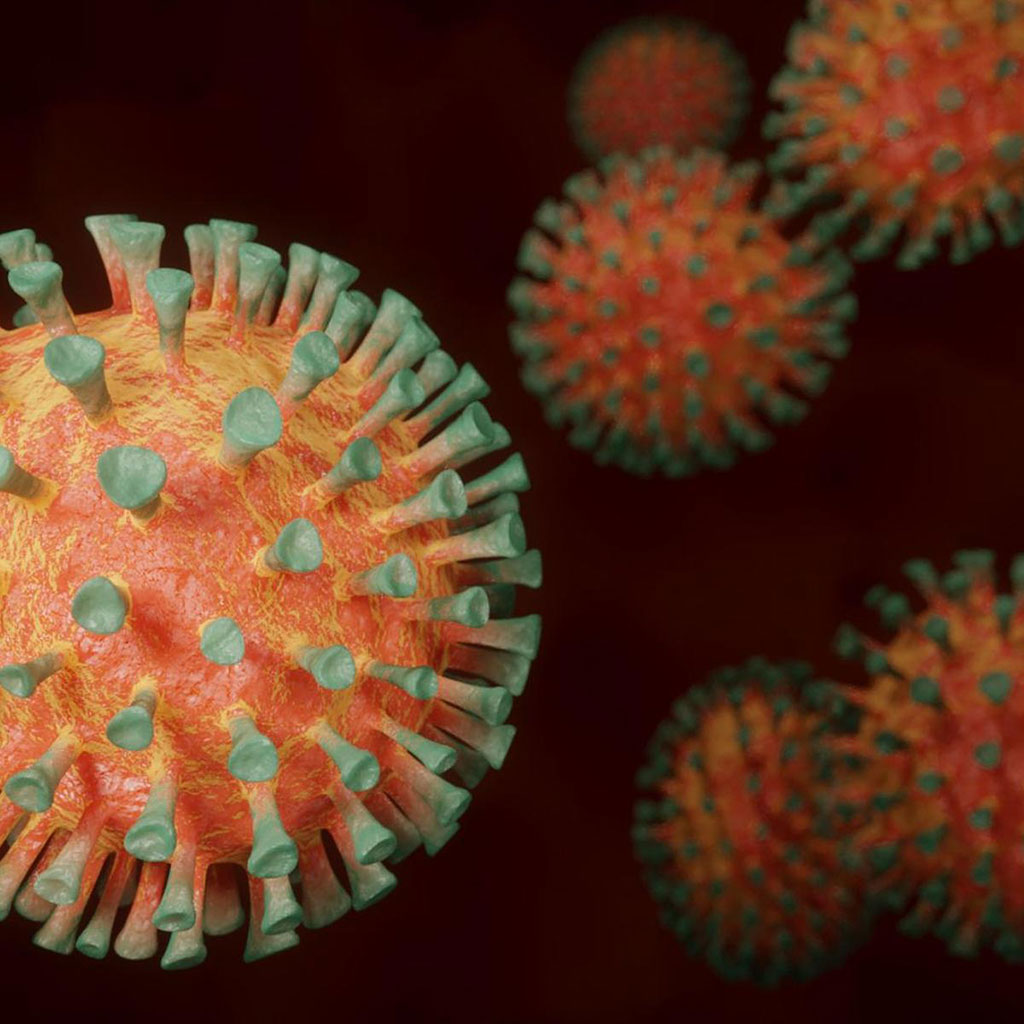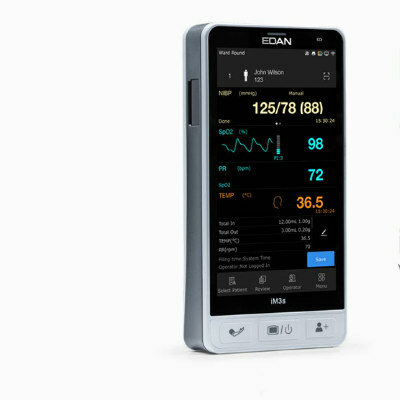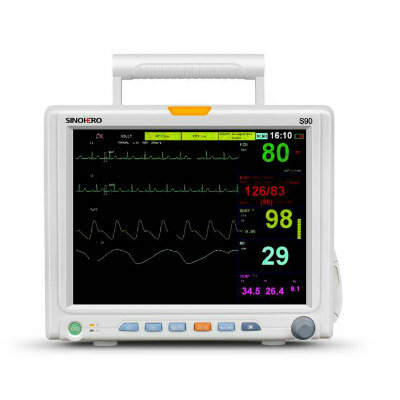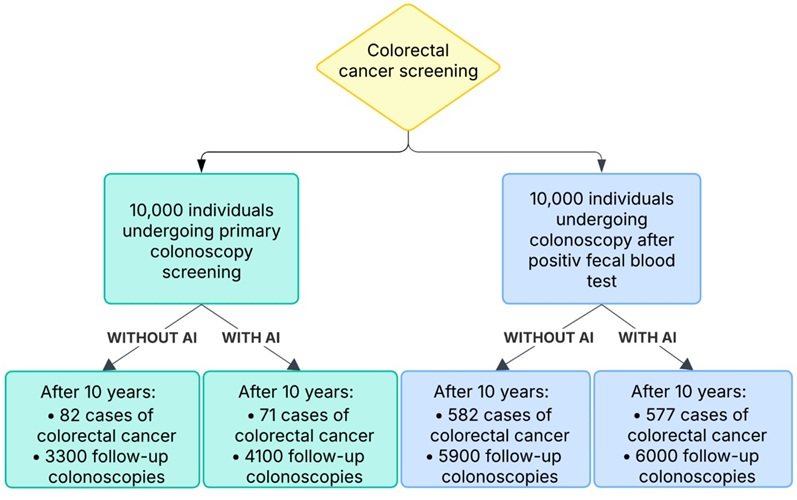New Long-Acting Antibody Combination Treatment Could Give COVID-19 Immunity
|
By HospiMedica International staff writers Posted on 28 Dec 2020 |

Illustration
Researchers have begun two clinical trials for testing a long-acting antibody combination treatment to protect against COVID-19.
In the STORM CHASER study, researchers from the University College London Hospitals NHS Foundation Trust (UCLH; London, UK) have recruited 10 participants to date. They believe the antibody or LAAB, known as AZD7442 and developed by AstraZeneca (Cambridge, UK) may offer immediate and long-term protection to people who have been recently exposed to the SARS-CoV-2 virus, to prevent them developing COVID-19. The other study, PROVENT, is looking at use of AZD7442 in people who may not respond to vaccination (for instance where someone has a compromised immune system) or are at increased risk of COVID-19 infection due to factors such as age and existing conditions. Antibodies are protein molecules that the body produces to help fight infections. Monoclonal antibodies are artificially produced in a laboratory and designed as possible medical treatments. They are designed to be injected directly into the body, unlike vaccines which ‘train’ the immune system itself to produce antibodies.
The LAABs have been engineered with AstraZeneca’s proprietary half-life extension technology to increase the durability of the therapy for six to 12 months following a single administration. The combination of two LAABs is also designed to reduce the risk of resistance developed by the SARS-CoV-2 virus. In both PROVENT and STORM CHASER, researchers will assess whether the treatment reduces the risk of developing COVID-19 and/or reduces the severity of infection compared to placebo.
Key participant groups in the STORM CHASER trial will include healthcare workers, students who live in group accommodation, and patients who are exposed to anyone with the SARS-CoV-2 virus which causes COVID-19, as well as residents of long-term care facilities and industrial/military settings. Both trials are taking place at the Vaccine Research Centre at UCLH, which has been opened to help accelerate the development of new vaccines and treatments during the COVID-19 pandemic. As licensed vaccines become available to qualifying trial participants, a mechanism will be put in place to enable them to safely leave the study if deemed medically beneficial. Being a trial participant in one of the studies will not delay the process of receiving a vaccination and should not prevent patients being involved in other studies if they do develop an illness related to COVID-19.
“We know that this antibody combination can neutralize the virus, so we hope to find that giving this treatment via injection can lead to immediate protection against the development of COVID-19 in people who have been exposed – when it would be too late to offer a vaccine,” said UCLH virologist Dr. Catherine Houlihan who is leading the STORM CHASER study.
“We will be recruiting people who are older or in long-term care, and who have conditions such as cancer and HIV which may affect the ability of their immune system to respond to a vaccine. We want to reassure anyone for whom a vaccine may not work that we can offer an alternative which is just as protective,” said UCLH infectious diseases consultant Dr. Nicky Longley who is leading the UCLH portion of PROVENT.
Related Links:
University College London Hospitals NHS Foundation Trust
AstraZeneca
In the STORM CHASER study, researchers from the University College London Hospitals NHS Foundation Trust (UCLH; London, UK) have recruited 10 participants to date. They believe the antibody or LAAB, known as AZD7442 and developed by AstraZeneca (Cambridge, UK) may offer immediate and long-term protection to people who have been recently exposed to the SARS-CoV-2 virus, to prevent them developing COVID-19. The other study, PROVENT, is looking at use of AZD7442 in people who may not respond to vaccination (for instance where someone has a compromised immune system) or are at increased risk of COVID-19 infection due to factors such as age and existing conditions. Antibodies are protein molecules that the body produces to help fight infections. Monoclonal antibodies are artificially produced in a laboratory and designed as possible medical treatments. They are designed to be injected directly into the body, unlike vaccines which ‘train’ the immune system itself to produce antibodies.
The LAABs have been engineered with AstraZeneca’s proprietary half-life extension technology to increase the durability of the therapy for six to 12 months following a single administration. The combination of two LAABs is also designed to reduce the risk of resistance developed by the SARS-CoV-2 virus. In both PROVENT and STORM CHASER, researchers will assess whether the treatment reduces the risk of developing COVID-19 and/or reduces the severity of infection compared to placebo.
Key participant groups in the STORM CHASER trial will include healthcare workers, students who live in group accommodation, and patients who are exposed to anyone with the SARS-CoV-2 virus which causes COVID-19, as well as residents of long-term care facilities and industrial/military settings. Both trials are taking place at the Vaccine Research Centre at UCLH, which has been opened to help accelerate the development of new vaccines and treatments during the COVID-19 pandemic. As licensed vaccines become available to qualifying trial participants, a mechanism will be put in place to enable them to safely leave the study if deemed medically beneficial. Being a trial participant in one of the studies will not delay the process of receiving a vaccination and should not prevent patients being involved in other studies if they do develop an illness related to COVID-19.
“We know that this antibody combination can neutralize the virus, so we hope to find that giving this treatment via injection can lead to immediate protection against the development of COVID-19 in people who have been exposed – when it would be too late to offer a vaccine,” said UCLH virologist Dr. Catherine Houlihan who is leading the STORM CHASER study.
“We will be recruiting people who are older or in long-term care, and who have conditions such as cancer and HIV which may affect the ability of their immune system to respond to a vaccine. We want to reassure anyone for whom a vaccine may not work that we can offer an alternative which is just as protective,” said UCLH infectious diseases consultant Dr. Nicky Longley who is leading the UCLH portion of PROVENT.
Related Links:
University College London Hospitals NHS Foundation Trust
AstraZeneca
Latest COVID-19 News
- Low-Cost System Detects SARS-CoV-2 Virus in Hospital Air Using High-Tech Bubbles
- World's First Inhalable COVID-19 Vaccine Approved in China
- COVID-19 Vaccine Patch Fights SARS-CoV-2 Variants Better than Needles
- Blood Viscosity Testing Can Predict Risk of Death in Hospitalized COVID-19 Patients
- ‘Covid Computer’ Uses AI to Detect COVID-19 from Chest CT Scans
- MRI Lung-Imaging Technique Shows Cause of Long-COVID Symptoms
- Chest CT Scans of COVID-19 Patients Could Help Distinguish Between SARS-CoV-2 Variants
- Specialized MRI Detects Lung Abnormalities in Non-Hospitalized Long COVID Patients
- AI Algorithm Identifies Hospitalized Patients at Highest Risk of Dying From COVID-19
- Sweat Sensor Detects Key Biomarkers That Provide Early Warning of COVID-19 and Flu
- Study Assesses Impact of COVID-19 on Ventilation/Perfusion Scintigraphy
- CT Imaging Study Finds Vaccination Reduces Risk of COVID-19 Associated Pulmonary Embolism
- Third Day in Hospital a ‘Tipping Point’ in Severity of COVID-19 Pneumonia
- Longer Interval Between COVID-19 Vaccines Generates Up to Nine Times as Many Antibodies
- AI Model for Monitoring COVID-19 Predicts Mortality Within First 30 Days of Admission
- AI Predicts COVID Prognosis at Near-Expert Level Based Off CT Scans
Channels
Artificial Intelligence
view channel
Innovative Risk Score Predicts Heart Attack or Stroke in Kidney Transplant Candidates
Heart researchers have utilized an innovative risk assessment score to accurately predict whether patients being evaluated for kidney transplants are at risk for future major cardiac events, such as a... Read more
AI Algorithm Detects Early-Stage Metabolic-Associated Steatotic Liver Disease Using EHRs
Liver disease, which is treatable when detected early, often goes unnoticed until it reaches advanced stages. Metabolic-associated steatotic liver disease (MASLD), the most prevalent form of liver disease,... Read moreCritical Care
view channel
AI Eye Scans Could Help Identify Heart Disease and Stroke Risk
New research has explored the advantages of utilizing artificial intelligence (AI) retinal imaging for screening cardiovascular diseases in general practice (GP) clinics and highlighted areas where improvements... Read more
Digital Heart Twin Improves Diagnosis and Treatment of Cardiac Arrhythmias
Millions of individuals around the globe suffer from cardiac arrhythmias. Traditionally, electrocardiography (ECG) has been used to detect premature ventricular contractions (PVCs), one of the most common... Read more
First-Of-Its-Kind AI-Powered Probability Scoring System Assesses Heart Failure with Preserved Ejection Fraction
Heart failure with preserved ejection fraction (HFpEF) is one of the most difficult types of heart failure to diagnose due to the intricate interaction between various clinical and echocardiographic factors.... Read moreSurgical Techniques
view channel
New Transcatheter Valve Found Safe and Effective for Treating Aortic Regurgitation
Aortic regurgitation is a condition in which the aortic valve does not close properly, allowing blood to flow backward into the left ventricle. This results in decreased blood flow from the heart to the... Read more
Minimally Invasive Valve Repair Reduces Hospitalizations in Severe Tricuspid Regurgitation Patients
The tricuspid valve is one of the four heart valves, responsible for regulating blood flow from the right atrium (the heart's upper-right chamber) to the right ventricle (the lower-right chamber).... Read morePatient Care
view channel
Portable Biosensor Platform to Reduce Hospital-Acquired Infections
Approximately 4 million patients in the European Union acquire healthcare-associated infections (HAIs) or nosocomial infections each year, with around 37,000 deaths directly resulting from these infections,... Read moreFirst-Of-Its-Kind Portable Germicidal Light Technology Disinfects High-Touch Clinical Surfaces in Seconds
Reducing healthcare-acquired infections (HAIs) remains a pressing issue within global healthcare systems. In the United States alone, 1.7 million patients contract HAIs annually, leading to approximately... Read more
Surgical Capacity Optimization Solution Helps Hospitals Boost OR Utilization
An innovative solution has the capability to transform surgical capacity utilization by targeting the root cause of surgical block time inefficiencies. Fujitsu Limited’s (Tokyo, Japan) Surgical Capacity... Read more
Game-Changing Innovation in Surgical Instrument Sterilization Significantly Improves OR Throughput
A groundbreaking innovation enables hospitals to significantly improve instrument processing time and throughput in operating rooms (ORs) and sterile processing departments. Turbett Surgical, Inc.... Read moreHealth IT
view channel
Printable Molecule-Selective Nanoparticles Enable Mass Production of Wearable Biosensors
The future of medicine is likely to focus on the personalization of healthcare—understanding exactly what an individual requires and delivering the appropriate combination of nutrients, metabolites, and... Read more
Smartwatches Could Detect Congestive Heart Failure
Diagnosing congestive heart failure (CHF) typically requires expensive and time-consuming imaging techniques like echocardiography, also known as cardiac ultrasound. Previously, detecting CHF by analyzing... Read morePoint of Care
view channel
Handheld, Sound-Based Diagnostic System Delivers Bedside Blood Test Results in An Hour
Patients who go to a doctor for a blood test often have to contend with a needle and syringe, followed by a long wait—sometimes hours or even days—for lab results. Scientists have been working hard to... Read more
Smartphone-Enabled, Paper-Based Quantitative Diagnostic Platform Transforms POC Testing
Point-of-care diagnostics are crucial for public health, offering rapid, on-site testing that enables prompt diagnosis and treatment. This is especially valuable in remote or underserved regions where... Read moreBusiness
view channel
Expanded Collaboration to Transform OR Technology Through AI and Automation
The expansion of an existing collaboration between three leading companies aims to develop artificial intelligence (AI)-driven solutions for smart operating rooms with sophisticated monitoring and automation.... Read more



















